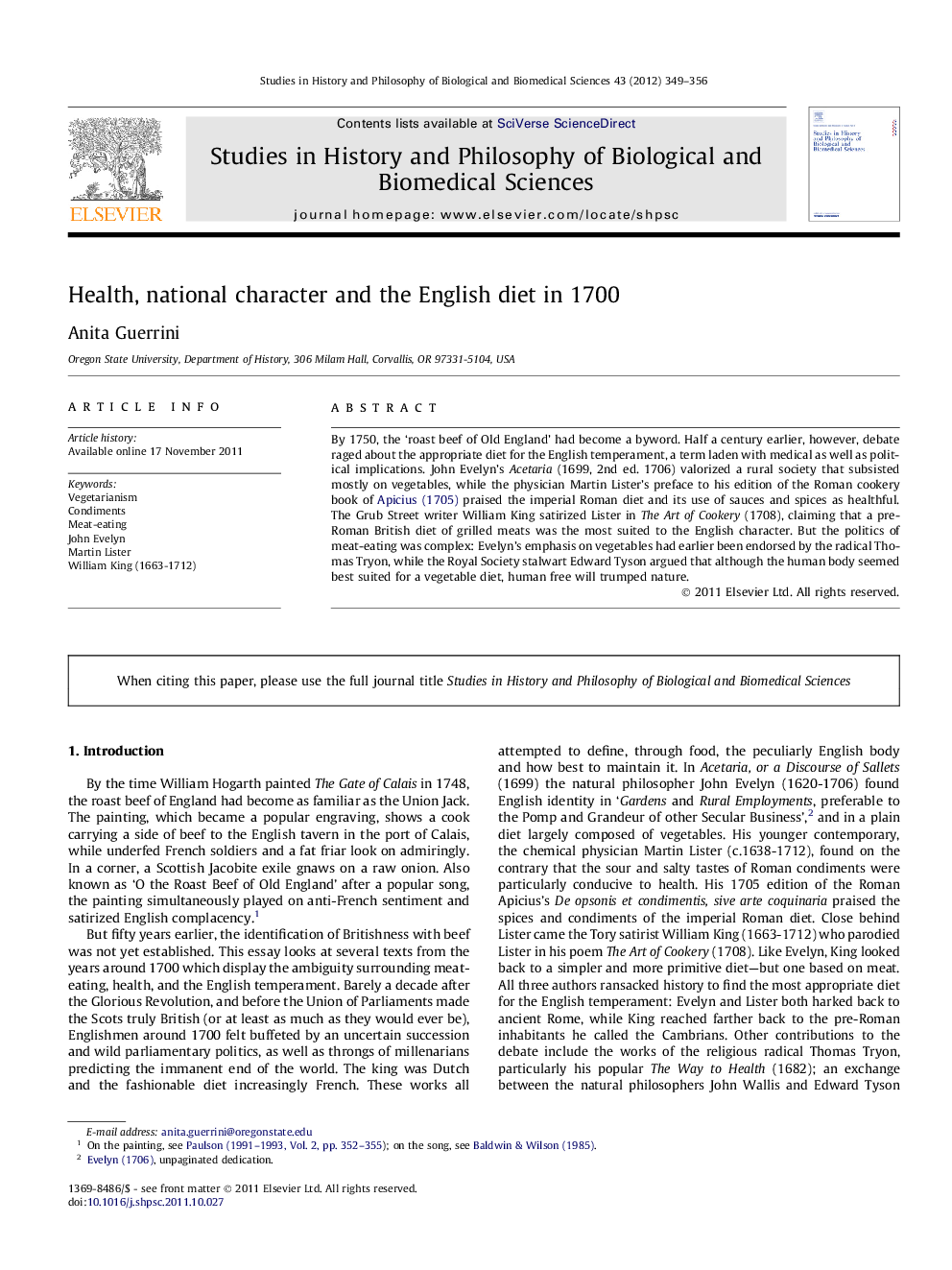| Article ID | Journal | Published Year | Pages | File Type |
|---|---|---|---|---|
| 1161830 | Studies in History and Philosophy of Science Part C: Studies in History and Philosophy of Biological and Biomedical Sciences | 2012 | 8 Pages |
By 1750, the ‘roast beef of Old England’ had become a byword. Half a century earlier, however, debate raged about the appropriate diet for the English temperament, a term laden with medical as well as political implications. John Evelyn’s Acetaria (1699, 2nd ed. 1706) valorized a rural society that subsisted mostly on vegetables, while the physician Martin Lister’s preface to his edition of the Roman cookery book of Apicius (1705) praised the imperial Roman diet and its use of sauces and spices as healthful. The Grub Street writer William King satirized Lister in The Art of Cookery (1708), claiming that a pre-Roman British diet of grilled meats was the most suited to the English character. But the politics of meat-eating was complex: Evelyn’s emphasis on vegetables had earlier been endorsed by the radical Thomas Tryon, while the Royal Society stalwart Edward Tyson argued that although the human body seemed best suited for a vegetable diet, human free will trumped nature.
